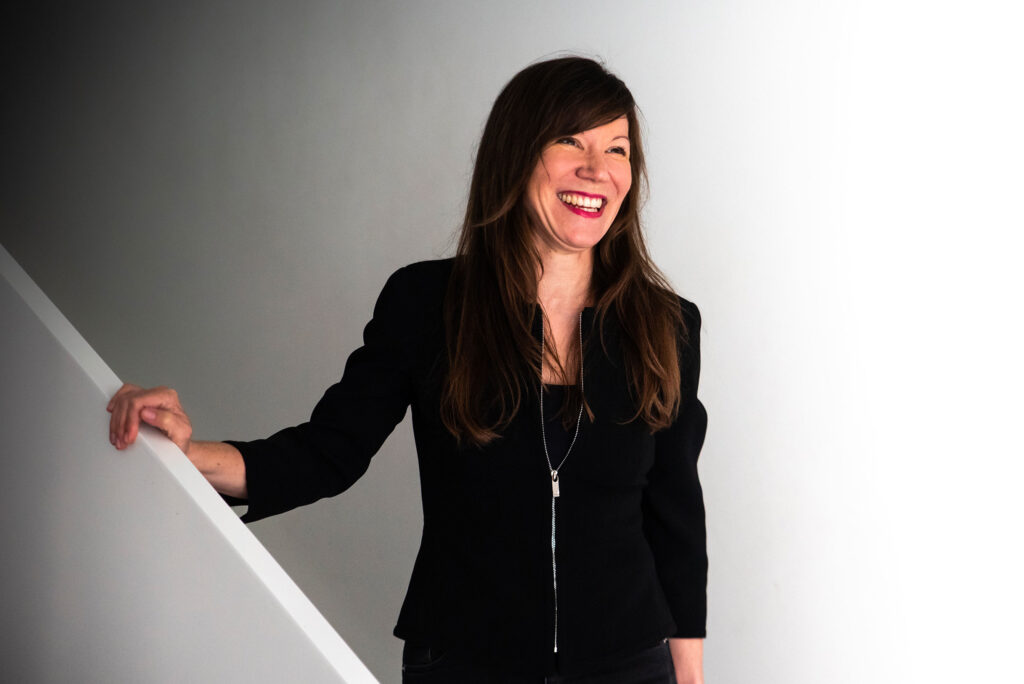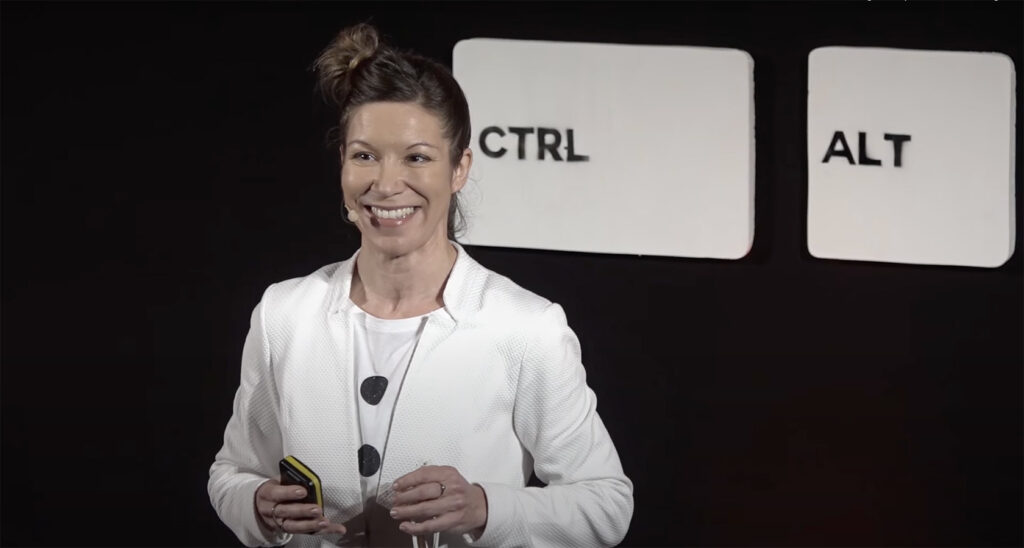Olga Miler had a dream job at a major Swiss bank. But she wanted more: Two years ago, she set up her own business and has been running her own company ever since. Money is still the focus, but Miler stands for more than just profit. We talked to the entrepreneur about how financial education can make people happier and the world a better place.
Ms. Miler, you want to explain to as many people as possible how the financial world works. Why is that so important to you?
People don’t know enough about money. It would be essential to understand the basics of this world. Only those who understand the financial world can plan efficiently for their old age and achieve their own goals.
A study impressively shows how much there is still to learn in this country: When young Swiss people save for a house, their money usually stays in a savings account – not because they consciously decide to do so, but because they don’t know the alternatives. This is a missed opportunity because money in a savings account can’t do much and doesn’t work for you.
Those who invest their assets, on the other hand, often get the money they need to buy a house more quickly. That’s why I’ve made it my mission to teach people more about money, and to do it in an entertaining way. It’s incredibly fun for me; I wouldn’t want to do anything else.
You’ve built an online platform for this, which is explicitly aimed at women. Why are you focusing on women?
Women are financially disadvantaged – for various reasons: They receive less money for the same work, and they also often work part-time and have frequent interruptions in their career. In some cases, this results in large gaps in pension provision.
However, women in particular can greatly improve their living situation if they invest their money properly. For a long time, there was no place where women could discuss these topics and the role of money in their lives. We want to close this gap with “SmartPurse“. My goal is that we can talk to each other naturally about money. That would help a lot of people.
What’s the best way to start learning about the world of finance?
The important thing is not how you start, but that you start. That’s precisely the most common mistake: Many people don’t even start or quickly give up because they feel overwhelmed by abbreviations and technical terms.
I, therefore, recommend everyone to acquire a good, basic understanding of the financial market. To do this, you can take a course or read books and blogs. It’s up to everyone to figure out for themselves what works best for them.
That’s how I started, by the way: I joined a bank as a marketing expert for a consulting project. In the beginning, I didn’t know much about this industry and googled everything in the evening, which confused me during the day. First and foremost, I didn’t want to embarrass myself. That’s how my passion was ignited: I realised that working at the bank wasn’t just about statistics, but about real people with real lives.

During interview breaks, Miler keeps an eye on her email inbox. While the cameras are being readjusted, she gives feedback on the new design of the “SmartPurse” website, conceives marketing videos, plans lectures, and seminars.
Miler is bursting with energy and motivation, talking at least as fast as she thinks. She now shares all the knowledge she gained in more than a decade at UBS at financial courses for women in Switzerland and abroad. Although she founded her startup only two years ago, Miler has already won several awards and is a sought-after speaker. But to her, doing something good with her actions is much more important than awards.
You think it’s important that private investors also consider sustainability. Why shouldn’t people just focus on profit when investing?
We must all care about what happens to our planet. We can influence this through our investment strategy. According to studies, investing your money in a sustainable way in your pension fund can actually have more of an effect than going vegetarian or giving up flying for life. Money has a big signalling effect: When we invest part of our assets, this capital is not just sitting in the bank but flows to certain companies. So we have a choice about which companies we want to support and how we set our priorities. That’s another reason why financial education is so important: If you don’t understand how the stock market works, you can’t make sense of your money. That’s not only a missed opportunity for individual investors, but also for a better world. That’s exactly why I’m so committed to financial education. It’s not just the banking industry that would need to do a better job of teaching the principles, but the schools as well.

It’s much more important to me to have my professional freedom than to accumulate millions in my bank account.
What role does money play in your life?
The role of money in my life has changed over the years, of course. Today, I’m no longer concerned with maximising my bank account, but my happiness in life. It’s much more important for me to have my professional freedom than to accumulate millions in my bank account. Studies have shown anyway that personal happiness doesn’t increase above a certain annual income; in Switzerland, that’s about 100,000 Francs.
What mistakes have you made with money?
An insane number of mistakes! (laughs) With money, I’ve probably made almost every mistake you can imagine. I’ve bought investments that were too expensive, I didn’t invest at all for a while, I fell for scams. Fortunately, I only lost small amounts each time. But my biggest mistake was definitely that I was too hesitant. Looking back, I would invest much more aggressively.
What other goals do you have in your career?
I want to measurably improve financial education in several countries – and that will probably keep me busy for a long time. In parallel, I want to do more in sustainability and develop new solutions. I can also imagine supporting other startups as an angel investor.
I hope that at some point in my old age, I’ll drop dead with a glass of champagne in my hand and will be able to say: I did something with my life – and what I did made a difference. It has helped people.
We are excited and keep our fingers crossed. Thank you very much, Ms. Miler, for taking the time to talk to us!




